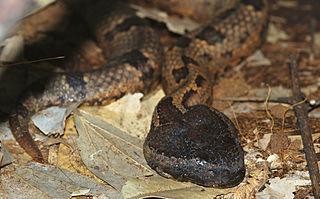A patronymic, or patronym, is a component of a personal name based on the given name of one's father, grandfather, or an earlier male ancestor. A component of a name based on the name of one's mother or a female ancestor is a matronymic. Each is a means of conveying lineage.
Chinese surnames are used by Han Chinese and Sinicized ethnic groups in Mainland China, Hong Kong, Macau, Malaysia, Brunei, Taiwan, Korea, Singapore, Indonesia, Philippines, Vietnam and among overseas Chinese communities. In ancient times two types of surnames existed, namely xing or clan names, and shi or lineage names.
When a person assumes the family name of his or her spouse, that name replaces the person's birth surname, which in the case of the wife is called the maiden name, whereas a married name is a family name or surname adopted by a person upon marriage.
A surname, family name, or last name is the portion of a personal name that indicates a person's family. Depending on the culture, all members of a family unit may have identical surnames or there may be variations based on the cultural rules.

The European Anti-Fraud Office is a body mandated by the European Union (EU) with protecting the Union's financial interests. It was founded on 28 April 1999, under the European Commission Decision 1999/352. Its tasks are threefold:
Spanish naming customs are historical traditions for naming children practised in Spain. According to these customs, a person's name consists of a given name followed by two family names (surnames). The first surname is usually the father's first surname, and the second the mother's first surname. In recent years, the order of the surnames can be decided at birth. Often, the practice is to use one given name and the first surname only, with the full name being used in legal, formal, and documentary matters, or for disambiguation when the first surname is very common. In these cases, it is common to use only the second surname, as in “Lorca”, "Picasso" or “Zapatero”. This does not affect alphabetization: discussions of "Lorca", the Spanish poet, must be alphabetized in an index under “García Lorca", never "Lorca".
In the Philippines, varying naming customs are observed, whether it is given name first, family name last, a mixture of native conventions with those of neighbouring territories, etc. The most common iteration amongst Filipinos is a blend of the older Spanish system and Anglo-American conventions, where there is a distinction between the "Christian name" from "surname". The construct of having several names in the middle name convention is common to all systems, but to have multiple "first" names and only one middle and last name is a result of the blending of American and Spanish naming customs. The Tagalog language is one of the few national languages in Asia to use the Western name order while formally uses the eastern name order. Thus, the Philippine naming custom is coincidentally identical to the Spanish and Portuguese name customs and to an extent Chinese naming customs.
A formal Irish-language personal name consists of a given name and a surname. Surnames in Irish are generally patronymic in etymology, although they are no longer literal patronyms, as Icelandic names are. The form of a surname varies according to whether its bearer is male or female and in the case of a married woman, whether she chooses to adopt her husband's surname.

Ovophis monticola is a venomous pitviper species found in Asia. Currently, two subspecies are recognized, including the nominate subspecies described here. Recent taxonomic work suggests that most of these should be considered as separate species. IUCN has already evaluated O. m. makazayazaya as Ovophis makazayazaya.

Trimeresurus gramineus, known as the bamboo pit viper, Indian green pit viper, or common green pit viper, is a venomous pit viper species found only in southern India. It is the type species for the genus Trimeresurus.
The Sikkim keelback is a species of grass snake in the family Colubridae. The species is endemic to South Asia. It is closely related to the Himalayan keelback, and some treat this species as a synonym.
A Portuguese name is typically composed of one or two given names, and a number of family names. The first additional names are usually the mother's family surname(s) and the father's family surname(s). For practicality, usually only the last surname is used in formal greetings.

Protobothrops mangshanensis, commonly known as the Mangshan pitviper, Mt. Mang pitviper, or Mang Mountain pitviper, is a venomous pitviper species endemic to Hunan and Guangdong provinces in China. No subspecies are currently recognized.

Daniel is a masculine given name and a surname of Hebrew origin. It means, "God is my judge", and derives from two early biblical figures, primary among them Daniel from the Book of Daniel. It is a common given name for males, and is also used as a surname. It is also the basis for various derived given names and surnames.
Hans Martin or Hans-Martin may refer to:

Platyceps is a genus of snakes of the family Colubridae.





